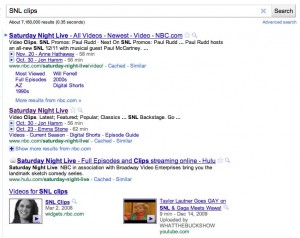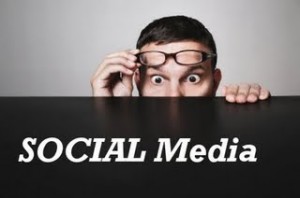Prompted by Google’s statement that YouTube vows “quicker, tougher copyright enforcement,” ReelSEO’s Grant Crowell tackled this issue on a listenable podcast titled “YouTube Copyright Tips,” with the help of David Michail and Daliah Saper (check 5-minute mark of this video to hear Saper’s illuminating story about what I’ll call a “social-media impaired judge”).
Crowell’s got a voice for radio and a light, funny style.. and he’s passionate about the cross-section of legal issues and the online-video medium. In keeping with the 12 days of Christmas, Grant provides 15 tips that are valuable even if obvious and painful to read/hear.
Increasingly even song parodies are coming under fire, and some companies are looking to make examples of people doing even innocuous things like putting together a “Google Images” collage. Even the Hitler parodies are under fire.
Here’s a link to Google’s Public Policy Blog on the subject, where YouTube is making 4 specific steps:
- New and improved 24-hour action on “reliable” takedown requests- per DCMA. I’ve noticed when my kids post their claymation videos using pop songs they’ve purchased on iTunes, their videos vanish quickly in what appears to be an automatic (thumbprint technology) bust.
- Preventing terms that are closely associated with piracy from appearing in autocomplete (SNL clips, justin bieber).
- Improve AdSense anti-piracy review: expelling violators (which would include YouTube Partners).
- They will give authorized content better accessibility in search results. That’s a big deal, and will negatively impact those video creators who have benefited from search mistakes. For instance, someone searching Keisha is probably looking for a Keisha video not a parody video.
So let’s use an example… Here’s what I got searching “keisha” on Google –an intentional misspelling of Kei$ha). Neither appears legit. One’s a rip, and the other’s a website that’s embedding a video. Will these sustain, or will Google direct people to the “singer’s” videos?

Some key points from Grant and his lawyers:
- To protect your own work, you should register/trademark your content (sorry, we’re a bit lazy here but thanks)
- Even small stuff (using an image or brief clip of song) is a copyright infringement and can be penalized by death.
- Check out legalvideoguides (Grant’s channel) or get a lawyer friend (most attorneys are eager and willing to be friends since they don’t tend to have any).
- While you may be protected under “fair use,” you’re risking hundreds of dollars… to hundreds of thousands of dollars in and infringement suit. It can be expensive to defend.
- Under DCMA, most creators can issue their own “take down” notice to YouTube to get them removed. So while that often means getting attacked by Viacom, it’s also a resource that YouTubers can use if their own stuff gets ripped by trolls… happens to me quite often. A ripped version of my stupid “head board” parody got more views than my own video, and I believe YouTube yanked it by my request. Usually I don’t bother.
- Read the “terms of use” and understand the process (yawn).
I’ll leave you with what may be an example of Google/YouTube’s policy #4…. Note that a search for SNL results provides #1 ranking to NBC, with a lower ranking (but thumbnailed) video from Buckley… Of course it’s also possible that we humans have taught Google to rank NBC because the slow-load & intensive advertising experience is so much superior to the ripped SNL clips that “made YouTube” (he says sarcastically).


